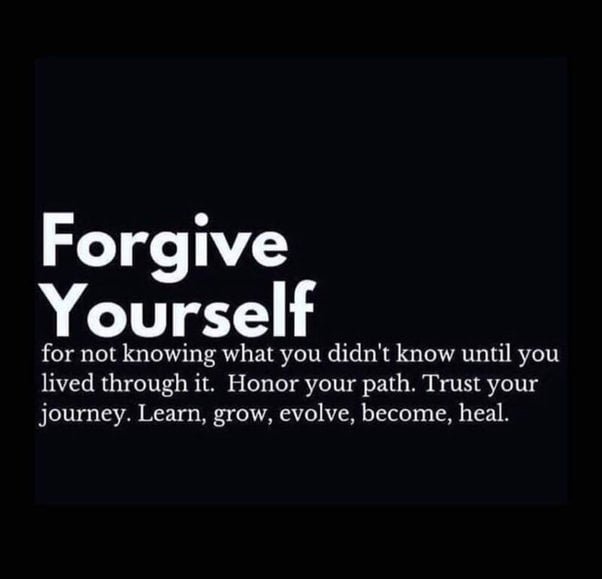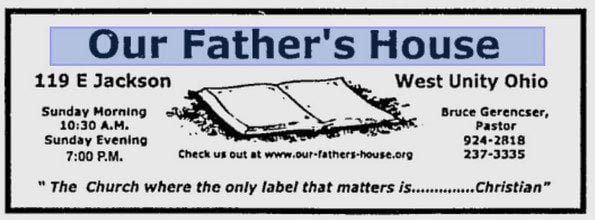
Last month — I am thirty days behind on answering my email — I received a thoughtful email from an atheist teenager who attends a Christian school. At the time he started attending this school, he was a believer. Eventually, he began to doubt, and now he is an atheist. The school used him as a shining advertisement for what a good Christian should be. This young man is having a hard time forgiving himself for being deceived by such a dangerous, harmful theology; for being anti-LGBTQ. He asked me if I had any advice for him that would help him forgive himself.
I have struggled with this question myself over the years. I was an Evangelical pastor for twenty-five years. I directly affected thousands of people with my teaching, preaching, and expectations. I taught people all sorts of harmful beliefs. Worse yet, I modeled behaviors and practices that negatively affected both church members and my family. I was an Independent Fundamentalist Baptist (IFB) preacher for many years, especially during the early years of my marriage to Polly and the formative years of our six children.
Polly and I had a patriarchal, complementarian marriage. These beliefs materially harmed Polly, for which she carries psychological scars to this day. The same can be said for our children. Our beliefs about family and discipline harmed our children. I was the primary disciplinarian in our family, using the rod of correction to beat our three sons into submission. Fortunately, I came to see that such discipline was child abuse, so our youngest son and two daughters were spared the ass-whippings.
We, of course, modeled to church members what we believed and practiced in our home. It’s not that I was deliberately abusive as much as it was that I believed the Bible taught a certain way of family structure and discipline; the same structure and discipline that was modeled to me by my parents, pastors, and the churches I attended. Attending an IFB college only reinforced these beliefs, convincing me they were right. Until I became persuaded that I was wrong, I continued to practice the “Biblical” way of family life, marriage, and discipline. How could I have ever done otherwise? Everything around me screamed that I was right. My literalist interpretation of the Bible said I was right. It would take me thirty years to reach a place where I could admit that I was wrong.
This young man talks about forgiving himself. While I was a true-blue believer a lot longer than he was, I do understand the struggle over trying to figure out how I could ever have believed what I did. It seems clear to me now that I had bat-shit crazy beliefs; that those beliefs materially harmed not only myself but also other people. I was fifty years old before I walked away from Christianity. Why didn’t I come to the light sooner? Indoctrination and social conditioning play a big part in training generation after generation about the faith once delivered to the saints — the Evangelical, IFB version of it, anyway. How could I have believed otherwise? The church was my life. I was largely insulated from the world, outside of playing sports and my work for various secular companies and government entities. There was nothing in my world that said to me that I was wrong. In fact, every preacher I heard preach and every book I read reminded me that I was right; that my beliefs and practices were in line with the Bible.
The best advice I can give to the letter writer is this: carefully, honestly, and openly examine your life and the experiences that led to your decision to believe in Jesus Christ and attend a Christian school. Look at these things from a sociological perspective. Self-examination and self-reflection are essential in understanding your motivations and desires. Once you have done this, forgive yourself, and determine that you will think differently going forward; that your life will be governed by reason, skepticism, and common sense. As I look at my life as a Christian, I see that I was not skeptical; I valued faith over reason, and this led to me having irrational beliefs and practices.
I have found it to be much harder to forgive myself for what I did to my wife, children, and church members. My beliefs caused them harm, both psychologically and physically. With these people, restitution is required before forgiveness can be given. So, over the past fifteen years, I have tried to make things right with Polly and our grown children and people who once called me preacher. When given an opportunity, I have apologized for the harm I caused them. The good news is that to a person they have forgiven me. They have shown me grace and forgiveness, understanding that I was a product of my environment; that I ignorantly taught and modeled the beliefs that were taught and modeled to me.
The letter writer is in a somewhat different position from the one I was in. He is a minor and lives at home. I don’t know how religious his parents are, what sect they are a part of, and how open they will be if he honestly shares with them his feelings. This is why he must tread carefully, lest he finds himself in trouble with his parents, or worse yet, thrown out of the home. I have advised some atheist minors in similar circumstances, to fake it until they make it; wait to fully share their lack of belief until they are out of the house and on their own.
The goal for this young man should be making restitution to people he feels he has wronged with his past religious beliefs. However, even here he must be careful. What will the administration of his school say when they learn he is an atheist; that he is apologizing for his past beliefs? I’m inclined to think that this will not go over very well with them, and could lead to discipline or expulsion. Making things right may mean waiting until after graduation to do so.
Bruce Gerencser, 68, lives in rural Northwest Ohio with his wife of 47 years. He and his wife have six grown children and sixteen grandchildren. Bruce pastored Evangelical churches for twenty-five years in Ohio, Texas, and Michigan. Bruce left the ministry in 2005, and in 2008 he left Christianity. Bruce is now a humanist and an atheist.
Your comments are welcome and appreciated. All first-time comments are moderated. Please read the commenting rules before commenting.
You can email Bruce via the Contact Form.




